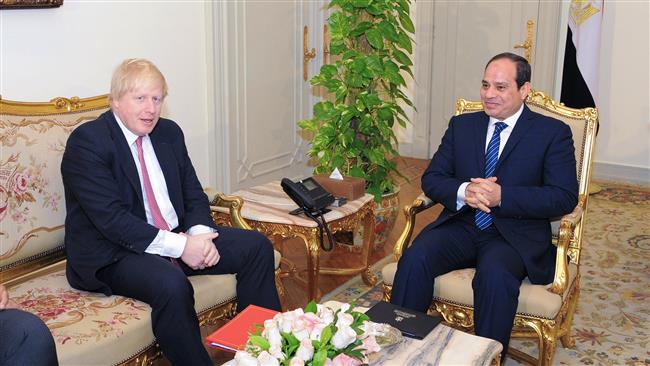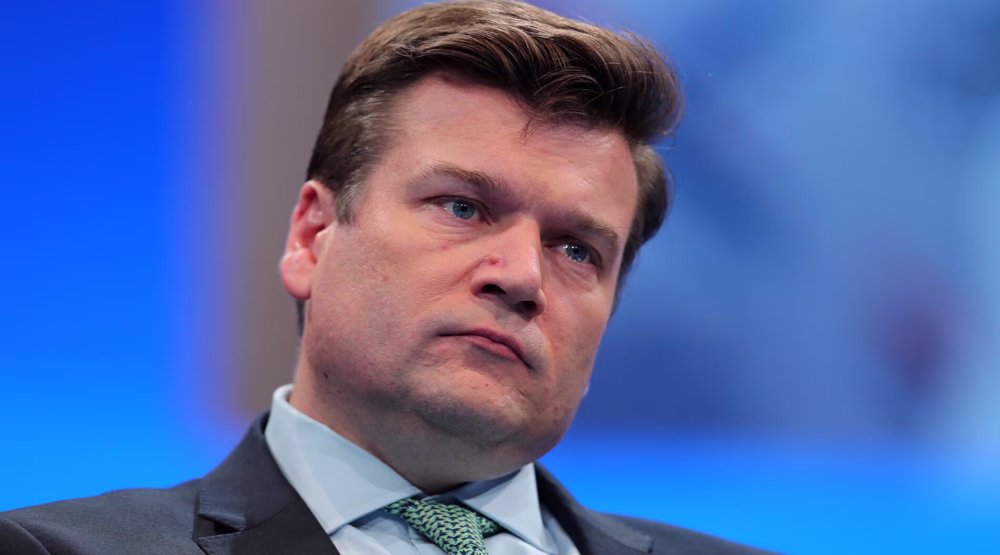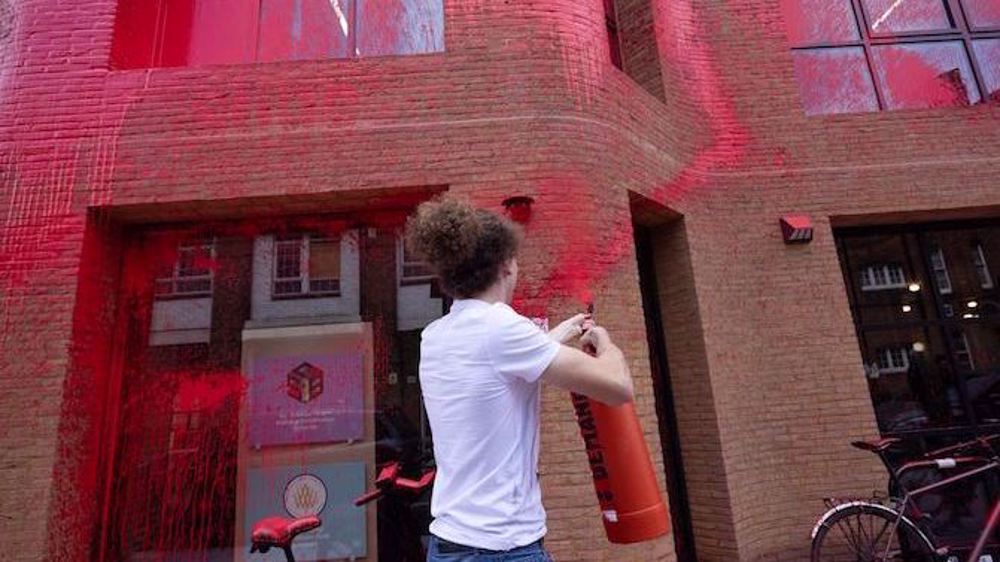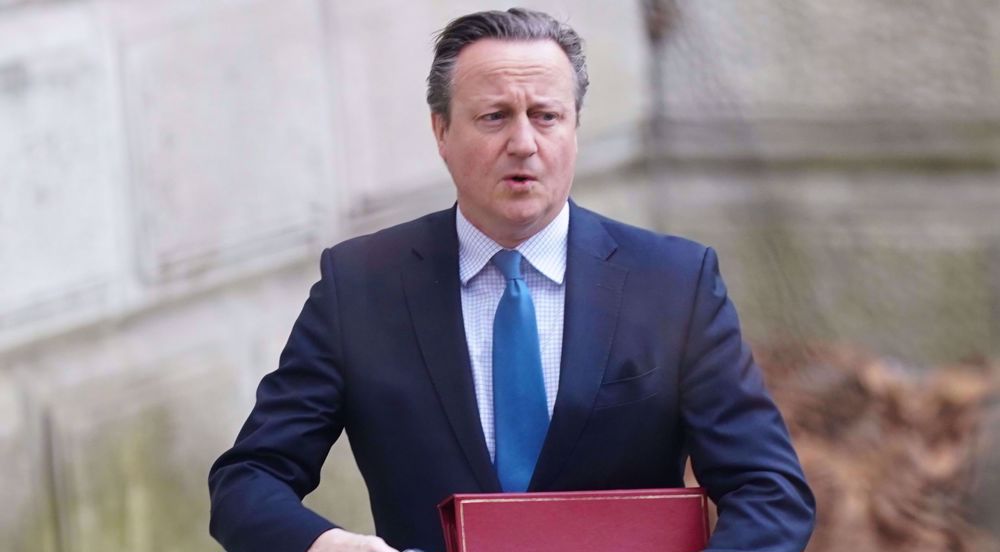Boris Johnson visits Egypt to ‘deepen’ ties
British Foreign Secretary Boris Johnson has made his first visit to Egypt to “deepen the strength” of mutual ties, amid calls by human rights groups to shed light on the human rights situation in the Middle Eastern country.
In his meeting with Egyptian President Abdel Fattah el-Sisi and Foreign Minister Sameh Hassan Shoukry on Saturday, Johnson discussed trade and finalized a $150 million loan guarantee agreement to Cairo.
The British loan is part of a $6 billion third-party funding Egypt needs to secure a three-year, $12 billion loan by the International Monetary Fund (IMF).
London had announced its support for the loan in November, arguing it was vital “to help the Egyptian economy realize its immense potential.”

Ahead of his trip, Johnson called the UK “Egypt's top economic partner” and said he would hold talks with British investors and Egyptian entrepreneurs during the visit.
According to UK Foreign Office, investment by British companies in the North African country surpassed $30 billion in 2016.
Human rights
Before Johnson’s visit, British human rights organizations including Reprieve urged the foreign secretary to raise the issue of human rights in his meetings with Egyptian officials.
The Egyptian government has been cracking down on opposition since former president, Mohamed Morsi, was ousted in a military coup led by then army chief el-Sisi in July 2013.
Rights groups say the army’s crackdown on the supporters of Morsi has led to the deaths of over 1,400 people and arrest of 22,000 others, including hundreds of people who have been sentenced to death in mass trials.
Reprieve asked Johnson to discuss the “appalling” abuse cases, such as the one concerning Irish national Ibrahim Halawa, who was arrested and imprisoned in Cairo in 2013, during the “Day of Rage” protests against Morsi’s ouster.
In a tweet, Johnson said Saturday that he had met with human rights groups and reminded el-Sisi’s government of “the importance of free society & rights as basis for stability and growth.”
Flights to Sharm al-Sheikh
Britain’s suspension of flights to the Red Sea resort of Sharm al-Sheikh was another highlight of Johnson’s meetings with Sisi and Shoukry.
Britain suspended all flights to Sharm al-Sheikh and other parts of Egypt after a Daesh-claimed bombing in November 2015 killed 224 holidaymakers on board a Russian airliner departing the resort, which was once a popular destination for British tourists.
Germany also announced a similar ban.
Shoukry called the move “unjustified” and said it was “inconsistent with Britain's repeated promises to support Egypt.”
According to Sisi’s office, both sides agreed to “continue working” on the issue.
70,000 pro-Palestine people in UK urge London to end arms exports to Israel
VIDEO | Gaza, Hezbollah, and decline of Zionism
Iran Greco-Roman wrestlers win Asian championship
Gaza authorities slam Israel for torturing Palestinian children
Putin: Iran’s retaliatory attack on Israel best way to punish aggressor
Erdogan: Israel to blame for tensions in West Asia
VIDEO | Iran’s ‘True Promise’
Op. True Promise showcased interoperability of Iran’s Army, IRGC: Top general










 This makes it easy to access the Press TV website
This makes it easy to access the Press TV website